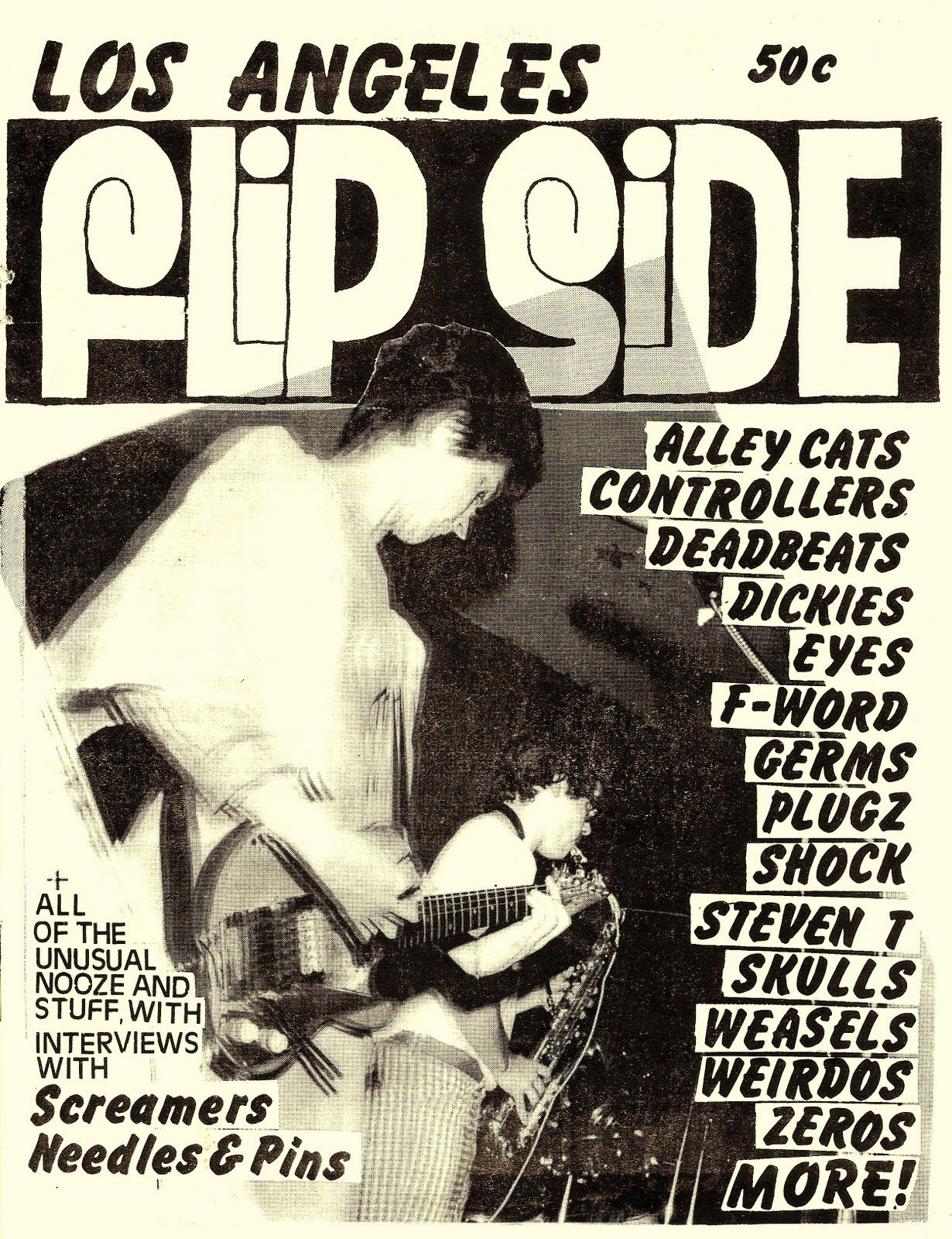Flipside Magazine (Prior revision dated Saturday 16 September 2023 03:20:06 -- @180)
Flipside Magazine, a trailblazer in the field of punk zines, was launched in Los Angeles, California, in 1977. The magazine connected audiences to the heart of the emergent punk rock scene, offering an articulate and passionate platform for the counterculture.
Co-created by Pooch, Al Kowalewski, and several other passionate Los Angeles music lovers, Flipside charted the unorthodox arcs and narratives of punk and alternative rock across various phases of their evolution, both domestically and internationally. The magazine's focus was not limited to music alone, however. It extended to the broader cultural context and ethos of the punk scene, brandishing comic strips, reviews of fanzines and records, interviews, and photographs as part of its eclectic content assemblage.
Flipside Magazine's unique approach to journalism, deliberately informal yet insightful, resonated with the punk ethos of the time. The magazine was run like a collective, with a plethora of contributors including writers, photographers, and artists who shared the vision of shedding light on underground music scenes.
Throughout its tenure, Flipside Magazine remained faithful to its roots. Even as various alternative and punk musicians rode the wave of mainstream success, the publication continued to explore the evolving underground punk landscape. This entailed striking a delicate balance in covering established bands and unearthing new talent, a task the magazine's editorial team executed with commendable precision.
One of Flipside's salient aspects was its long-form interviews. Conducted with sheer sincerity and audacity, they encapsulated the true spirit of the punk and alternative scenes, providing insightful narratives and candid views from artists who became synonymous with these genres.
The magazine's visual presentation dovetailed perfectly with its content, mashing together collages, DIY aesthetics, and scratchy, raw photographs that visually encapsulated the punk ethos. Flipside served not only as a witness to the evolution of numerous influential bands and artists but also as a touchstone of authenticity and integrity in the ever-changing realm of music journalism.
Despite ceasing its print edition in 2000, Flipside continues to live in the hearts of numerous punk and alternative enthusiasts, personifying a valuable chronicle of a pivotal era in music and cultural history.{{Categories}}